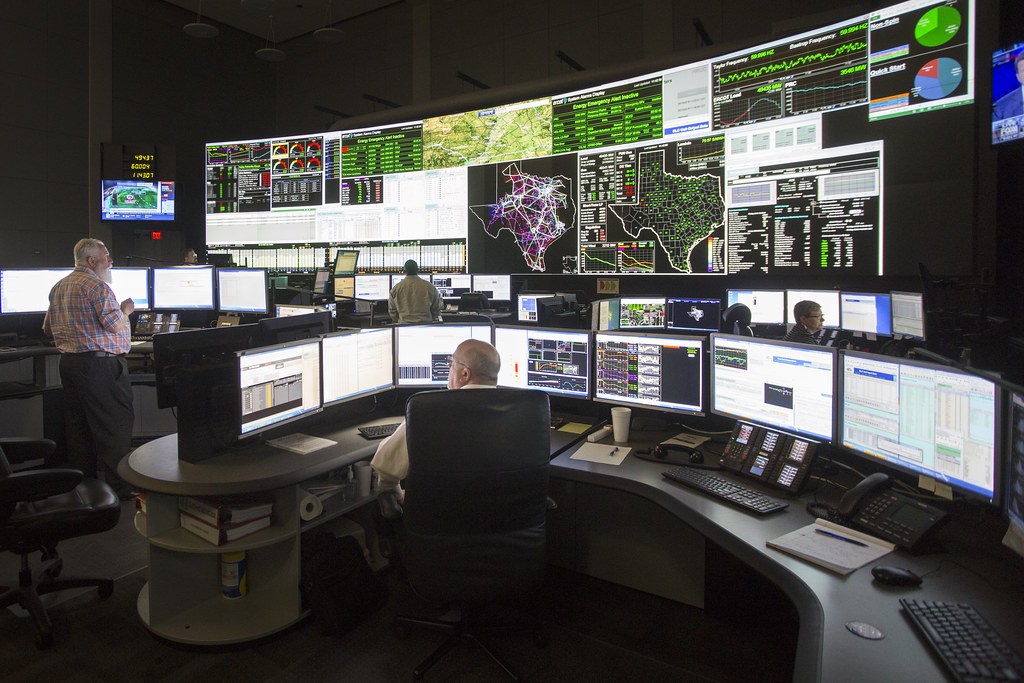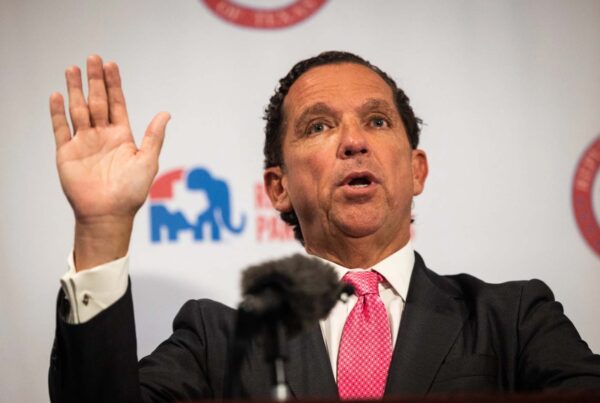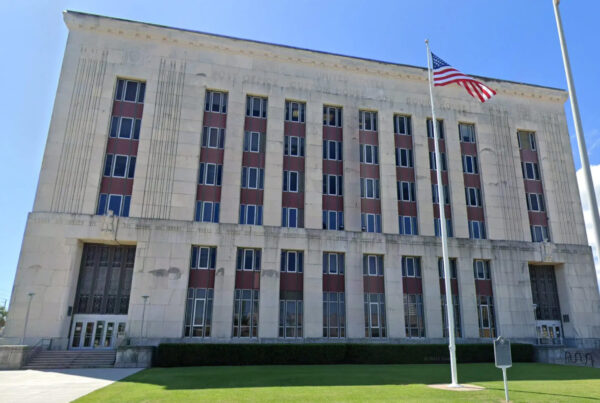The deep freeze caused by Winter Storm Uri in February 2021 knocked out electricity for millions of Texans for days on end.
One of the reasons why the outage lasted so long, according to some experts, is that Texas’ electric grid is essentially an island. The rest of the lower 48 states are part of either the Eastern or Western Interconnection, as the grids are called. That allows an easier exchange of power, and ideally minimal time in the dark.
Texas has managed its own grid for decades, but that could change: Federal regulators are now considering a rule that would force the state to connect to other grids.
James Osborne, a Washington-based economics correspondent for the Houston Chronicle, spoke to the Texas Standard about the potential rule change.
This transcript has been edited lightly for clarity:
Texas Standard: First, can you remind folks why Texas isn’t connected to other states’ grids, unlike the rest of the country?
James Osborne: Well, most power grids around the country are under the authority of the federal government. Texas is not; it, for some time now, has operated its own power grid within its own state lines. That allows the Public Utility Commission to decide how power prices are set in Texas to, you know, theoretically optimize the Texas economy – something that other states don’t have, where they’re subject to the authority of what’s called the Federal Energy Regulatory Commission, which is making the rules we’re talking about now.
What exactly is entailed in this proposal that would hook Texas’ grid up to other networks?
What they’re talking about is – and this is very early stages – creating some sort of minimal interconnection arrangement. Right now, most power grids around the country don’t have that much interconnection – at best, 8% or 9%, really. Texas is way down there; less than 1% of Texas’ power capacity is actually interconnected with other grids.
But in general, there is a belief in the federal government at all levels that these grids need to be more interconnected. As extreme weather increases, as we have more renewables coming online, it makes more sense to have more transfer capacity between grids.
» GET MORE NEWS FROM AROUND THE STATE: Sign up for our weekly ‘Talk of Texas’ newsletter
It’s my understanding that ERCOT’s warning that this week could be a tough one for the state’s power grid. I’m curious, though, would we be any better off this summer, for example? Do you know?
Theoretically, yeah. I mean, all around the country, there’s a lot of concern right now that everyone’s facing the same problems: all the coal plants are retiring; they’re being replaced by wind and solar power, which is great for the climate, but [they] only operate when there’s wind or sun. And so you don’t have that sort of constant supply of power that you enjoy with coal.
Texas is actually really good at operating in the summertime. All the power plants in Texas are really geared up to operate in extreme heat, that being a steady, regular part of Texas summer. What they’re not so good at is cold temperatures like we saw back in Uri. So theoretically, in that scenario, you could have had power coming from Oklahoma, Louisiana, that might have helped reduce the scale of the blackout in Texas.
Has it been quantified? You know, is it clear how much the blackouts of 2021 might have been alleviated had Texas’ grid been connected to other states?
There’s a whole bunch of different analysis out there. One woman I spoke to is a former FERC adviser [who] said it would have made a significant difference, though putting a number to it is difficult on something like that. There were so many factors going on. There were going to be blackouts anyway. It wouldn’t have stopped them, but it might have, you know, reduced how many people suffered from them and how long they lasted.
Are there any clues as to whether lawmakers or energy regulators in Texas are getting ready to fight this rule change? What are you hearing on that score?
Well, so far the Public Utility Commission is staying quiet. They want to wait and see. Like I said, this is all very preliminary.
There’s rulemaking at FERC where they’re sort of thinking about creating a rule. They haven’t written anything up yet. At the same time, Congress has a bill, but it hasn’t even been introduced yet. So this is all pretty early stages. So they’re kind of keeping their powder dry for now.
But I talked to Pat Wood. He was George Bush’s energy guru; he headed FERC up during the George H.W. Bush administration when he was president. No doubt there’s going to be pushback, but he thought if there could be guarantees that these rules in regards interconnection, if they could be written so that it didn’t expand the federal government’s authority over Texas in any other way, that there might be buy-in – that, you know, there could be some mutually beneficial aspects of this that would help shore up the Texas grid in the future.













